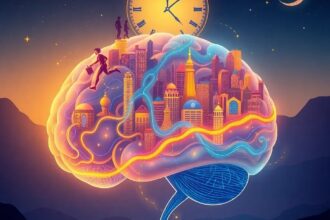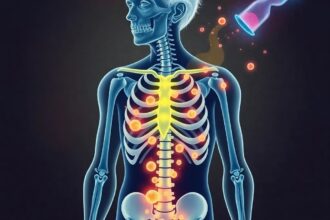Explore how aligning meal timing with your body’s natural rhythms can enhance insulin sensitivity, cortisol levels, and overall hormonal balance.
Discover the science of chrono-nutrition and how it can transform your hormonal health by syncing meal times with your body’s internal clock.
Introduction to Chrono-Nutrition
Chrono-nutrition is a scientific approach that aligns meal timing with the body’s circadian rhythms to optimize hormonal health. This concept, rooted in the understanding of how our internal clock regulates physiological processes, has gained traction in recent years. According to a study published in the Journal of Clinical Endocrinology & Metabolism
, meal timing can significantly influence insulin sensitivity, cortisol levels, and other hormones involved in metabolism and stress response.
The Role of Meal Timing in Hormonal Health
Eating breakfast within an hour of waking up can kickstart your metabolism and improve insulin sensitivity. A study from the American Journal of Clinical Nutrition
found that individuals who ate breakfast had better glucose control throughout the day compared to those who skipped it. Lunch should ideally be consumed around midday when cortisol levels are naturally higher, aiding in better digestion and nutrient absorption. Dinner, on the other hand, should be lighter and consumed at least three hours before bedtime to prevent disruptions in sleep and hormonal balance.
Intermittent Fasting and Hormonal Balance
Intermittent fasting, a practice that involves cycling between periods of eating and fasting, has been shown to improve hormonal balance. Research from the New England Journal of Medicine
indicates that intermittent fasting can enhance insulin sensitivity, reduce inflammation, and promote cellular repair. However, it’s crucial to tailor fasting schedules to individual needs and consult with a healthcare provider before starting any fasting regimen.
Macronutrient Composition and Hormone Regulation
The composition of your meals plays a pivotal role in hormone regulation. Protein, healthy fats, and complex carbohydrates are essential for maintaining balanced hormone levels. A study in the Journal of Nutrition
highlights that a diet rich in these macronutrients can improve insulin sensitivity and reduce cortisol levels. Incorporating foods like lean meats, avocados, nuts, and whole grains can support optimal hormonal health.
Practical Tips for Creating a Chrono-Nutrition Plan
To create a chrono-nutrition plan, start by establishing a consistent meal schedule that aligns with your circadian rhythms. Incorporate a balanced mix of macronutrients in each meal and avoid late-night eating. Sample meal schedules can include a protein-rich breakfast, a balanced lunch, and a light dinner. Regular monitoring and adjustments based on your body’s response are key to achieving long-term hormonal balance.
Latest Research and Implications for Long-Term Health
Recent studies continue to underscore the importance of chrono-nutrition in promoting long-term health. A 2023 review in Nature Reviews Endocrinology
suggests that aligning meal timing with circadian rhythms can reduce the risk of chronic diseases such as diabetes, obesity, and cardiovascular disorders. As research evolves, the integration of chrono-nutrition into daily life holds promise for enhancing overall well-being.




